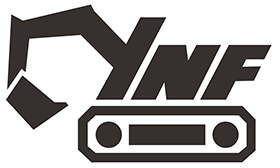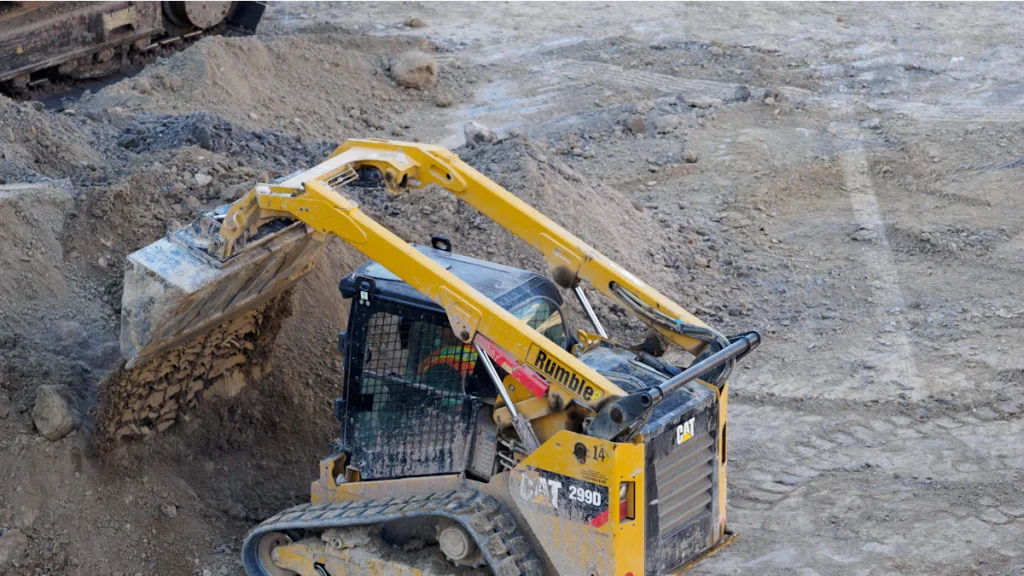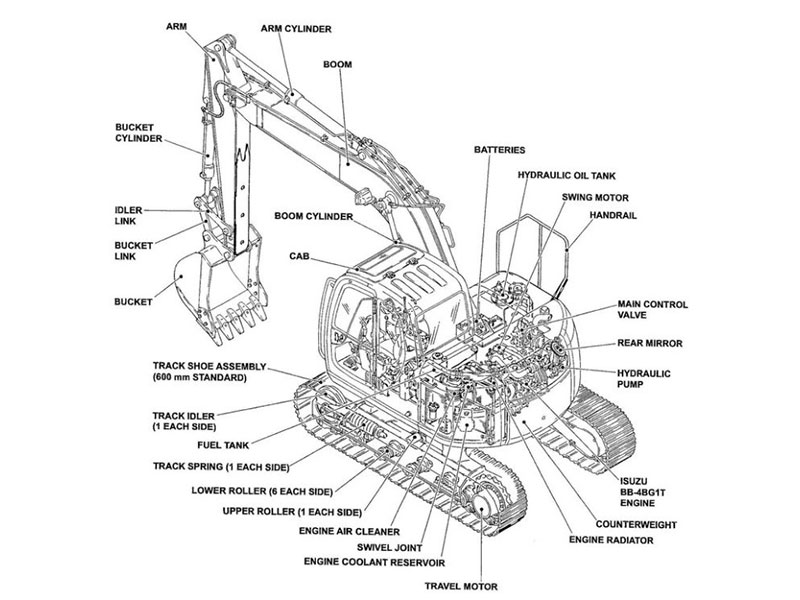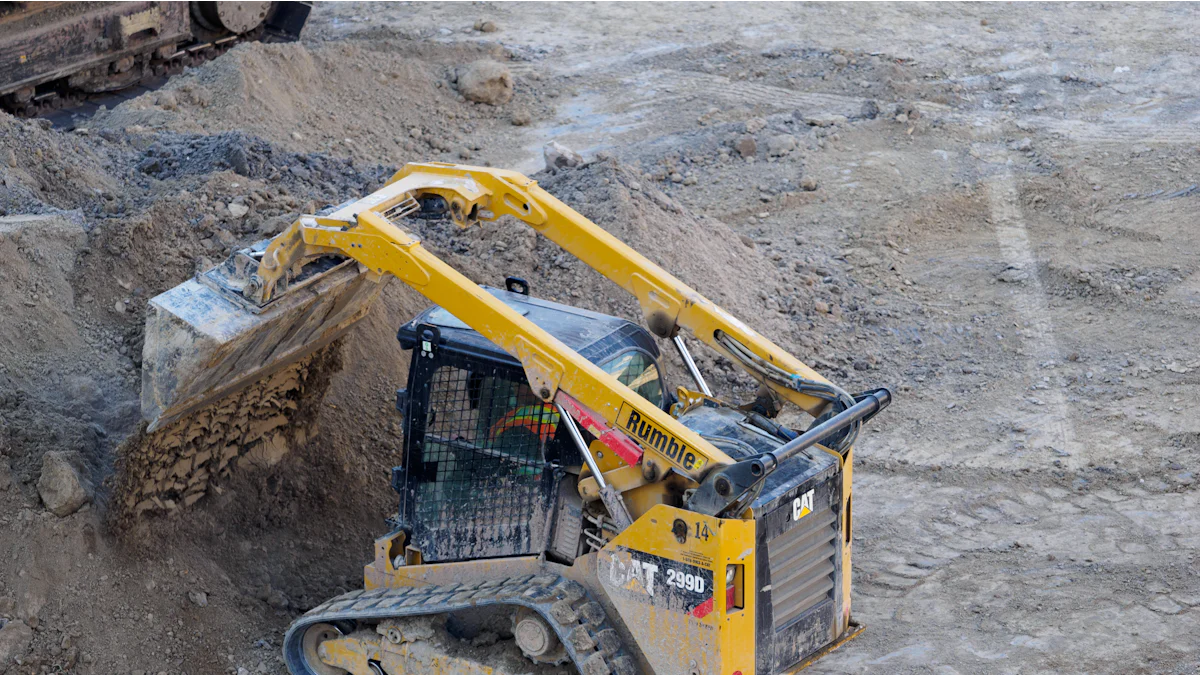
Regular maintenance plays a crucial role in keeping your Agrotk mini excavator parts running smoothly. By staying on top of maintenance tasks, you can prevent unexpected downtime and boost the efficiency of your equipment. Proactive maintenance not only extends the lifespan of your excavator but also enhances its performance. This approach saves you money by improving operations and productivity. Moreover, a well-maintained machine promotes safety on the job site, ensuring that everything runs without a hitch. So, make maintenance a priority to keep your excavator in top shape.
Key Takeaways
Prioritize regular maintenance to extend the lifespan and enhance the performance of your Agrotk mini excavator.
Conduct daily visual inspections and fluid level checks to catch small issues before they escalate into costly repairs.
Replace commonly worn parts like air filters, oil filters, and belts on schedule to prevent unexpected breakdowns.
Incorporate weekly lubrication of moving parts and tire inspections to maintain optimal machine performance.
Utilize technology such as telematics and maintenance scheduling software to monitor performance and streamline maintenance tasks.
Ensure proper storage of spare parts in climate-controlled environments to preserve their quality and functionality.
Invest in training for operators to enhance their skills in identifying maintenance needs and performing routine checks effectively.
Commonly Replaced Agrotk Mini Excavator Parts
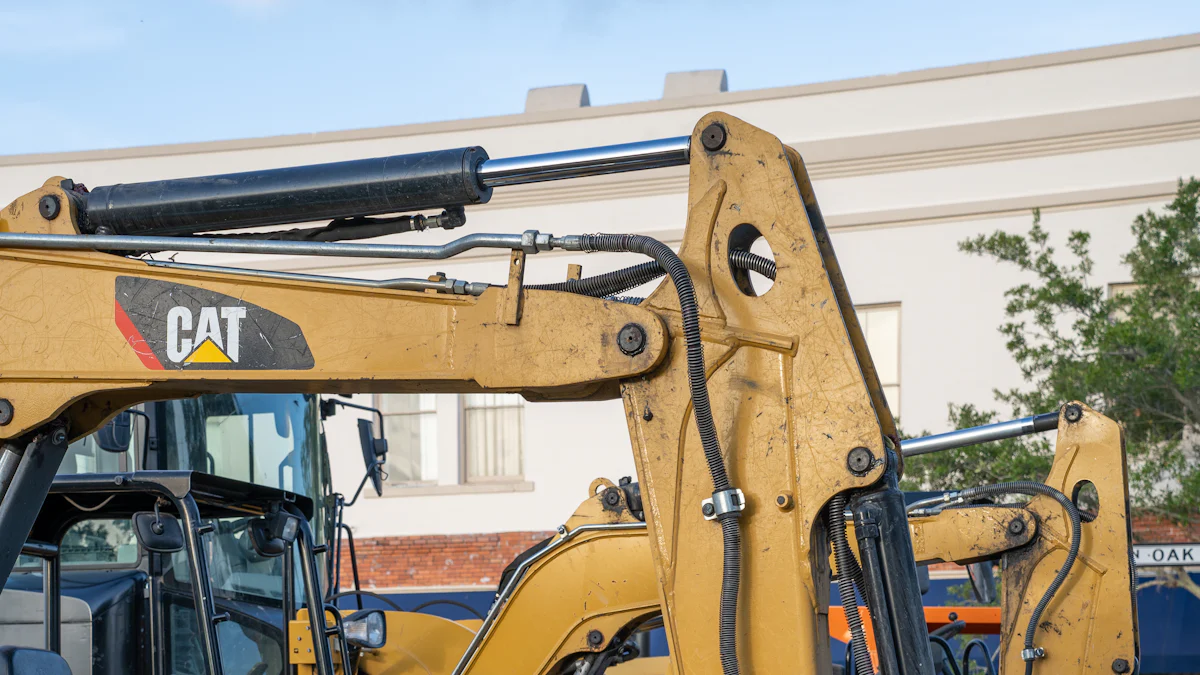
Keeping your Agrotk mini excavator in top condition requires regular attention to its various parts. Some components need more frequent replacement due to wear and tear. Let’s dive into the commonly replaced parts and why they matter.
Filters
Filters play a crucial role in maintaining your excavator’s performance. They keep contaminants out, ensuring smooth operation.
Air Filters
Air filters trap particles and prevent them from reaching your machine’s engine. If you notice reduced engine performance or poor fuel efficiency, it might be time to replace the air filters. Other signs include engine misfires, unusual noises, and warning lights. New air filters can range from $15 to $150, depending on your excavator’s model.
Oil Filters
Oil filters are essential for keeping your engine oil clean. They remove impurities that can cause engine damage. Regularly changing oil filters helps maintain optimal engine performance and prolongs the life of your excavator. Keep an eye on your maintenance schedule to ensure timely replacements.
Belts
Belts are vital for transferring power within your excavator. Over time, they can wear out and need replacement to avoid breakdowns.
Drive Belts
Drive belts connect various engine components, ensuring they work together efficiently. A worn-out drive belt can lead to engine overheating or stalling. Regular inspections help identify wear and prevent unexpected failures.
Timing Belts
Timing belts synchronize the movement of the engine’s camshaft and crankshaft. A broken timing belt can cause severe engine damage. Replacing it at recommended intervals is crucial for avoiding costly repairs.
Hoses
Hoses are integral to your excavator’s hydraulic and cooling systems. They transport fluids that keep your machine running smoothly.
Hydraulic Hoses
Hydraulic hoses carry fluid to power your excavator’s hydraulic components. Damaged hoses can lead to overheating, engine misfires, and stalling. Depending on their job, hoses can last from one to four years. Prices for new hoses vary widely, from $6 to several hundred dollars.
Coolant Hoses
Coolant hoses circulate coolant to regulate engine temperature. A leaking or damaged coolant hose can cause your engine to overheat. Regular checks and replacements ensure your excavator stays cool under pressure.
By staying on top of these maintenance tasks, you can keep your Agrotk mini excavator running efficiently and extend the life of its parts. Regular inspections and timely replacements are key to avoiding downtime and costly repairs.
Routine Mini Excavator Maintenance Tips
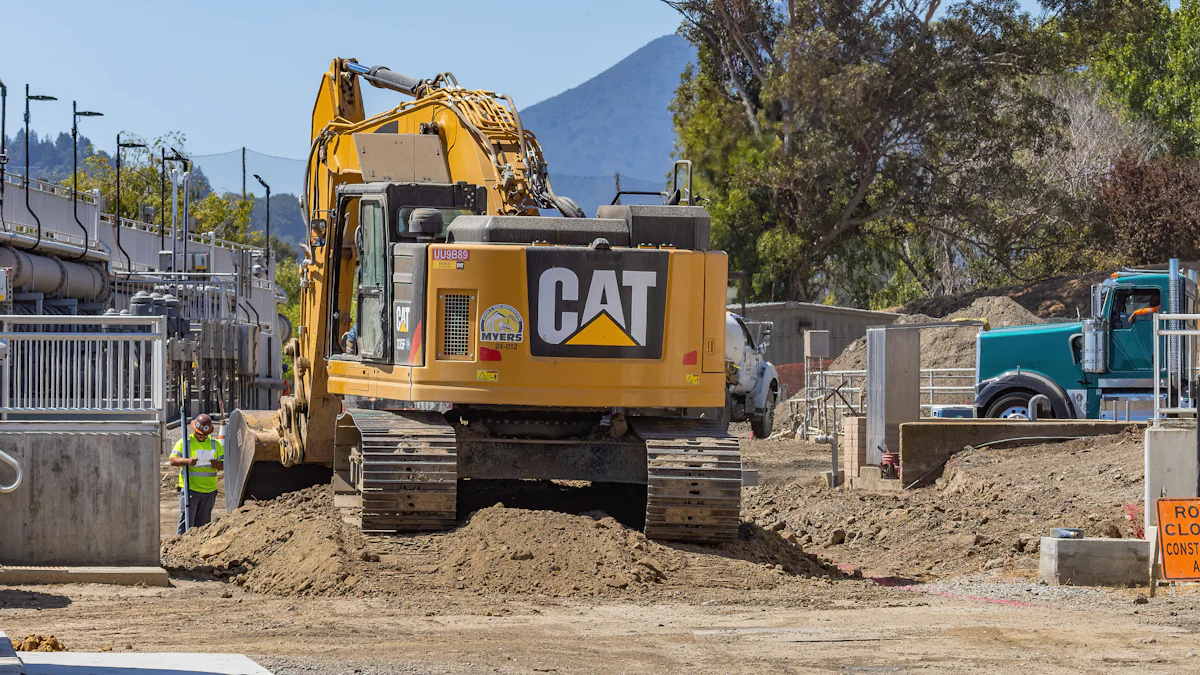
Keeping your Agrotk mini excavator in top shape requires a solid routine maintenance schedule. Regular checks and upkeep can prevent costly repairs and ensure your machine performs at its best. Let’s explore some essential maintenance tasks you should incorporate into your routine.
Daily Maintenance
Daily maintenance is crucial for catching small issues before they become big problems. Here’s what you should do every day:
Visual Inspections
Start your day with a thorough visual inspection of your mini excavator. Look for any signs of wear or damage on the parts. Check for leaks, cracks, or loose bolts. This simple step can help you spot potential issues early and keep your machine running smoothly.
Fluid Level Checks
Checking fluid levels daily is vital for maintaining your excavator’s engine and hydraulic systems. Ensure that oil, coolant, and hydraulic fluid levels are within the recommended range. Low fluid levels can lead to overheating and reduced machine performance. Keeping fluids topped up ensures everything runs efficiently.
Weekly Maintenance
Weekly maintenance tasks require a bit more time but are essential for keeping your mini excavator in peak condition.
Lubrication of Moving Parts
Lubricate all moving parts weekly to reduce friction and wear. Pay special attention to the arm, bucket, and other pivot points. Proper lubrication prevents premature wear and extends the life of your excavator’s components. As Certified Technicians often say, “Regular preventative maintenance ensures no problem goes overlooked.”
Tire and Track Inspections
Inspect the tires and tracks for wear and damage. Check for proper tension and alignment. Worn-out tracks or tires can affect stability and traction, leading to decreased machine performance. Regular inspections help you address these issues before they escalate.
Periodic Maintenance
Periodic maintenance involves more in-depth checks and adjustments to keep your mini excavator operating efficiently.
Engine Tune-Ups
Schedule regular engine tune-ups to maintain optimal performance. This includes checking spark plugs, air filters, and fuel systems. A well-tuned engine ensures your excavator runs smoothly and efficiently. Excavator Manufacturer guidelines suggest following specific service plans for each model to ensure comprehensive care.
System Diagnostics
Conduct system diagnostics periodically to identify any underlying issues. Use diagnostic tools to check the health of your excavator’s systems. This preventive maintenance routine helps you catch potential problems early, reducing the risk of unexpected breakdowns.
By following these routine maintenance tips, you can keep your Agrotk mini excavator in excellent condition. Regular checks and timely interventions ensure your machine performs optimally, extending the life of its parts and enhancing overall efficiency.
Best Practices for Maintenance with YNF Machinery
Keeping your Agrotk mini excavator in top condition requires more than just routine checks. Implementing best practices can significantly enhance the longevity and performance of your equipment. YNF Machinery offers valuable insights into maintaining your excavator efficiently.
Operator Training
Importance of Skilled Operators
You might wonder why skilled operators are crucial for your excavator’s maintenance. Well, they play a vital role in identifying potential issues before they escalate. Skilled operators understand the nuances of the machine, allowing them to spot warning signs early. This proactive approach helps prevent costly repairs and ensures smooth operation.
Regular Training Sessions
Regular training sessions keep your operators updated on the latest maintenance techniques. These sessions provide hands-on experience and knowledge about the excavator’s maintenance manual. By staying informed, operators can perform daily checks effectively, ensuring that your equipment remains in excellent condition. YNF Machinery emphasizes the importance of continuous learning to maintain high standards of service.
Use of Technology
Telematics for Monitoring
Telematics technology offers a modern solution for monitoring your excavator’s performance. It provides real-time data on various parameters, such as fluid levels and engine health. With telematics, you can track your machine’s condition remotely, allowing for timely interventions. This technology enhances your maintenance strategy by providing insights that help you make informed decisions.
Maintenance Scheduling Software
Maintenance scheduling software simplifies the process of keeping track of service intervals. It reminds you when it’s time for routine checks or professional service, ensuring that nothing gets overlooked. By following the maintenance manual and using scheduling tools, you can optimize your excavator’s performance and extend its lifespan. YNF Machinery recommends integrating technology into your maintenance routine for maximum efficiency.
By adopting these best practices, you can ensure that your Agrotk mini excavator operates at its best. Skilled operators, combined with advanced technology, create a robust maintenance framework. This approach not only enhances performance but also reduces downtime, saving you time and money in the long run.
Storage and Spare Parts Management for Preventive Maintenance
Proper storage and effective management of spare parts play a vital role in maintaining your Agrotk mini excavator. By ensuring that your parts are stored correctly and readily available, you can prevent unnecessary downtime and keep your equipment running smoothly.
Proper Storage Techniques
Storing your excavator parts properly is essential for preserving their quality and functionality. Here are some techniques to consider:
Climate-Controlled Environments
Keeping your parts in a climate-controlled environment helps protect them from extreme temperatures and humidity. These conditions can cause parts to deteriorate over time. By maintaining a stable climate, you ensure that your parts remain in optimal condition, ready for use when needed.
Secure Storage Facilities
A secure storage facility prevents unauthorized access and potential damage to your parts. Organize your storage area to make it easy to find and access parts quickly. This organization saves time and reduces the risk of losing valuable components.
Spare Parts Inventory
Managing your spare parts inventory efficiently ensures that you have the necessary components on hand for timely maintenance and repairs.
Keeping Essential Parts in Stock
Always keep essential parts in stock to avoid delays in maintenance. Identify the parts that are most frequently replaced or prone to wear and tear. Having these parts readily available minimizes downtime and keeps your excavator operational.
Efficient Inventory Management
Efficient inventory management involves tracking your parts usage and replenishing stock as needed. Use inventory management software to monitor your parts levels and set alerts for low stock. This proactive approach ensures that you never run out of critical components, allowing for seamless maintenance operations.
By implementing these storage and spare parts management strategies, you can enhance the longevity and performance of your Agrotk mini excavator. Proper storage and inventory management not only prevent downtime but also contribute to the overall efficiency of your maintenance routine.
Maintaining your Agrotk mini excavator parts is crucial for ensuring optimal performance and minimizing downtime. Regular preventive maintenance keeps your excavator in top condition, allowing you to focus on getting the job done efficiently. By adopting a preventive maintenance strategy, you can extend the life of your excavator and its parts, avoiding unnecessary breakdowns. This proactive approach not only saves money but also enhances productivity. Make preventive maintenance a priority in your preventative maintenance program to keep your equipment running smoothly and reduce downtime.
FAQ
What are some common maintenance steps for mini excavators?
To keep your mini excavator in top shape, follow these essential maintenance steps:
Daily Inspections: Check for leaks, loose bolts, and wear on parts.
Fluid Checks: Ensure oil, coolant, and hydraulic fluid levels are adequate.
Lubrication: Regularly grease pivot points like the arm and bucket.
Filter Replacements: Change air and oil filters as needed.
Track and Tire Inspections: Look for wear and ensure proper tension.
These steps help maintain your equipment’s performance and longevity.
Why is preventive maintenance important for mini excavators?
Preventive maintenance is crucial because it helps you spot issues before they become major problems. By understanding your mini excavator’s needs, you can address potential concerns early. This proactive approach reduces downtime and repair costs, ensuring your machine operates efficiently.
How often should I perform routine maintenance on my mini excavator?
Routine maintenance should be performed daily, weekly, and periodically. Daily tasks include visual inspections and fluid checks. Weekly, you should lubricate moving parts and inspect tracks. Periodically, conduct engine tune-ups and system diagnostics. Following a consistent schedule keeps your excavator in optimal condition.
What role do skilled operators play in excavator maintenance?
Skilled operators are vital for effective maintenance. They can identify potential issues early, preventing costly repairs. Regular training sessions keep operators informed about the latest maintenance techniques, ensuring your equipment remains in excellent condition.
How can technology assist in maintaining my mini excavator?
Technology, like telematics and maintenance scheduling software, offers valuable support. Telematics provides real-time data on your machine’s performance, allowing for timely interventions. Scheduling software helps track service intervals, ensuring routine checks aren’t missed. These tools enhance your maintenance strategy.
What should I consider when storing spare parts for my excavator?
Proper storage of spare parts is essential. Use climate-controlled environments to protect parts from extreme temperatures and humidity. Secure storage facilities prevent unauthorized access and damage. Efficient inventory management ensures you have essential parts on hand for timely maintenance.
How do I manage my spare parts inventory effectively?
Efficient inventory management involves tracking parts usage and replenishing stock as needed. Use inventory management software to monitor levels and set alerts for low stock. This proactive approach ensures you never run out of critical components, allowing for seamless maintenance operations.
